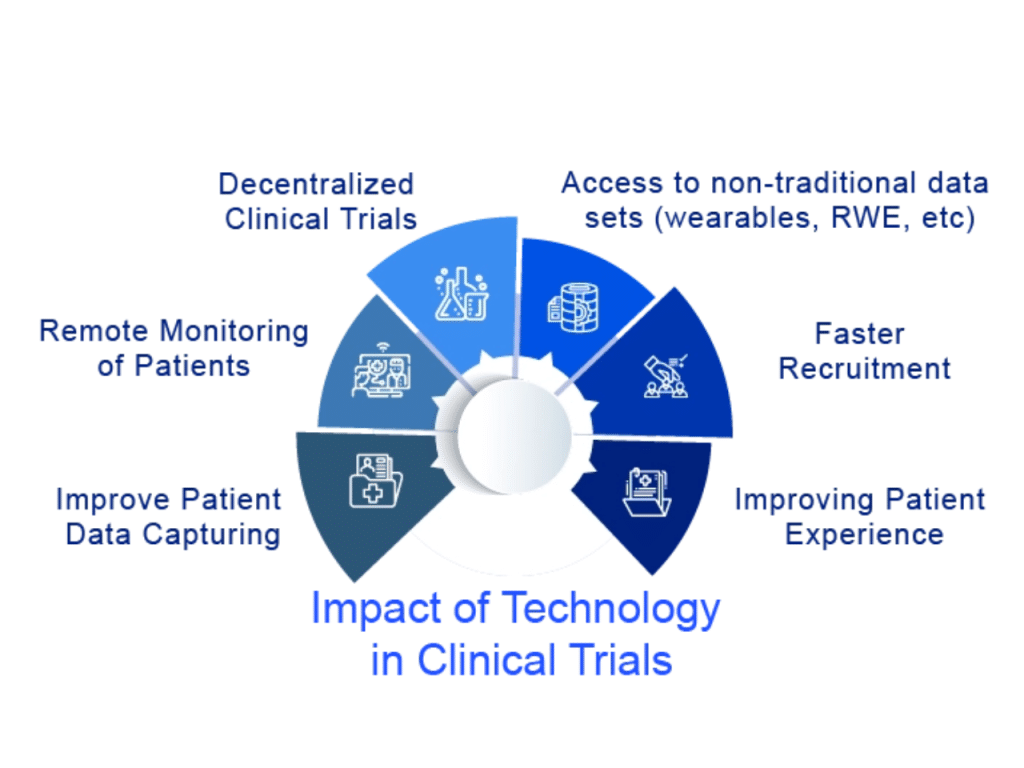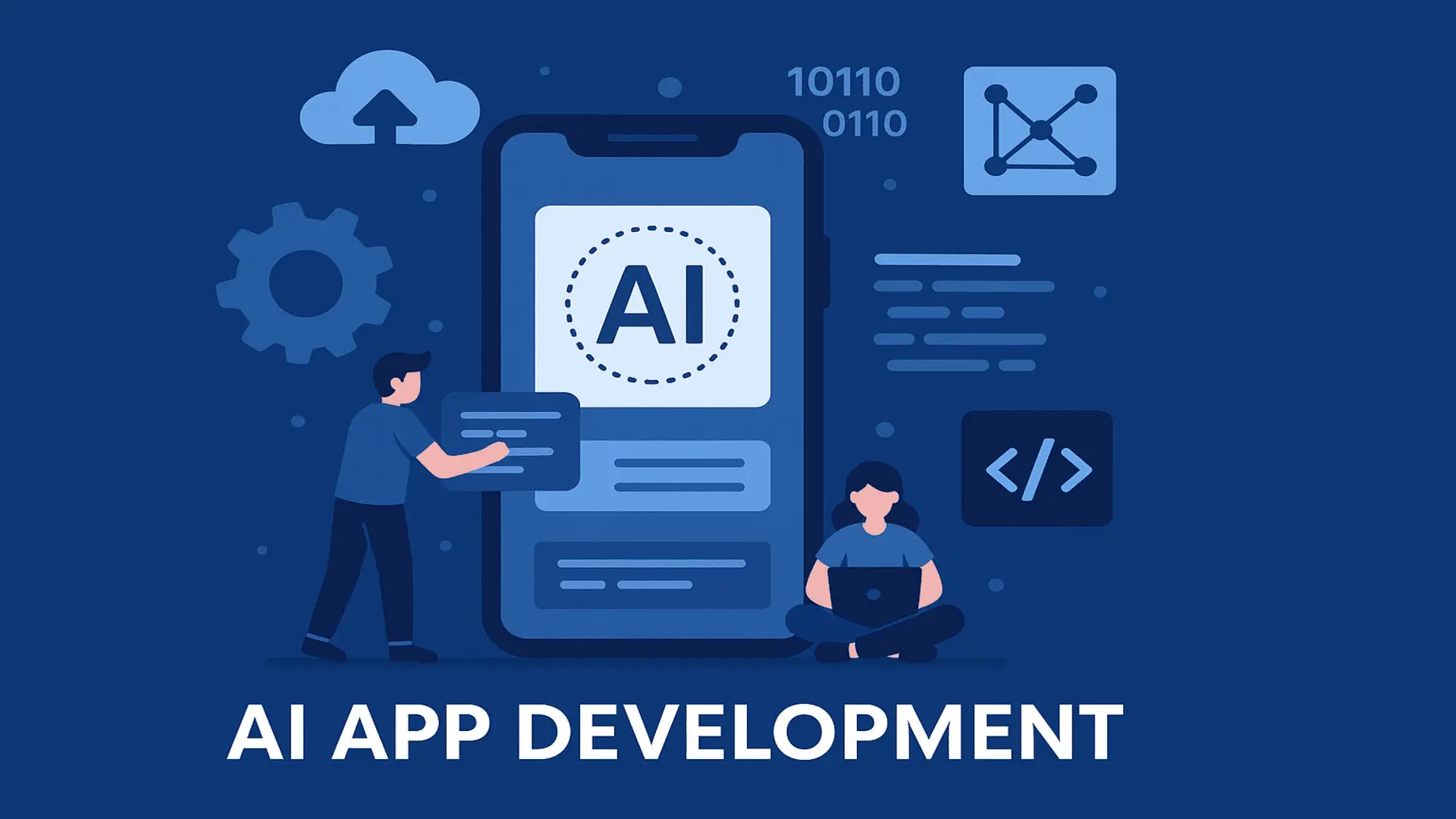How Software Innovations Help Patients Join Clinical Trials

In the ever-evolving healthcare landscape, embracing technology in clinical trials has become crucial for optimizing patient engagement and therapeutic outcomes. Traditional methods are giving way to digital innovations, revolutionizing how we approach clinical trials, and making them more patient-centric and data-driven.
Introduction
In the rapidly evolving healthcare sector, the integration of technology into clinical trials has become essential for enhancing patient engagement and improving therapeutic outcomes. Traditional approaches are being replaced by digital innovations, transforming the landscape of clinical research and placing a greater emphasis on patient-centricity and data-driven methodologies.
Embracing Digital Innovations in Clinical Trials
Gone are the days when clinical research was confined to traditional methods. Digital innovations, including wearable devices, remote monitoring, and virtual clinical visits, are redefining the design, recruitment, and retention strategies of clinical trials. Let’s delve into how these cutting-edge technologies are reshaping the clinical trial landscape across various therapeutic areas.
The Role of AI in Clinical Trial Design

Artificial Intelligence (AI) is playing a pivotal role in accelerating drug development and enhancing trial efficiency. During the trial planning phase, AI algorithms such as HINT and SPOT can predict the likelihood of success based on factors such as the drug molecule, target disease, and patient eligibility criteria. Tools like Trial Pathfinder, CriteriaQuery, DQueST, and TrialGPT assist in identifying the most eligible patients by analyzing complex criteria and patient data.
Custom AI Software Development Solution For Enterprises
Key Applications of AI
- Optimizing Trial Design: AI integrates diverse datasets to inform the selection of optimal patient populations and drug targets, minimizing R&D spending and enabling the creation of digital twins (virtual patient models).
- Enhancing Patient Recruitment and Retention: AI matches patients to trials based on eligibility criteria, improves recruitment rates, and boosts engagement through AI-powered chatbots.
- Streamlining Trial Conduct: AI-enabled digital health technologies like wearables and remote monitoring facilitate patient monitoring and medication adherence tracking, reducing trial burden and enabling adaptive protocols.
Data Management and Analysis
Effective data management is essential for ensuring the integrity, quality, and reliability of clinical trial data. AI handles missing data, automates data extraction, and identifies patient subgroups. Natural Language Processing (NLP) extracts insights from unstructured reports and annotates images/lab results.
Key Benefits of AI in Clinical Trials
– Streamlines operational processes
– Predicts patient response
– Accelerates pre-clinical testing
– Improves patient recruitment and retention
– Enhances data analysis
Challenges of AI in Clinical Trials
– Lack of standardized datasets for training AI models
– Validating and interpreting complex AI models
– Addressing biases in training data
– Navigating unclear regulatory frameworks
– Ensuring cost-effectiveness and accessibility of AI technologies
Optimizing Patient Recruitment
AI-powered platforms accelerate patient enrollment, improve medication adherence, and streamline regulatory submissions and data quality management. However, a significant percentage of clinical trials fail to recruit enough patients due to various challenges. To address this, targeted outreach strategies leveraging social media engagement, clear and accessible information, tailored messaging, and retargeting are essential.
Enhancing Patient Retention
Successful participant retention is crucial for the integrity and completion of clinical trials. Key strategies for enhancing retention include adopting a participant-centric approach, addressing barriers to participation, fostering engagement and trust, and leveraging direct-to-patient research models.
Conclusion
The integration of technology into clinical trials has ushered in a new era of patient-centricity and data-driven decision-making. From optimizing trial design and patient recruitment to enhancing data management and analysis, digital innovations are revolutionizing every aspect of the clinical trial lifecycle. While challenges persist, the potential benefits are profound, offering the promise of accelerated drug development and improved patient outcomes. By embracing these technological advancements, we can pave the way for a more efficient, inclusive, and impactful approach to clinical research.
Why Choose Cloudester?
Cloudester specializes in providing tailored solutions for clinical trial management, backed by a team of experienced professionals. Our comprehensive risk management approach ensures smooth project progress and timely delivery without compromising on quality. Explore our Electronic Clinical Trial Management System (ECTMS) at ECTMS.info and transform your clinical trial operations today. Partner with Cloudester, a leading software development company USA, for unparalleled expertise and support throughout your clinical trial journey.
Frequently Asked Questions
-
How are digital technologies implemented in clinical trials?
Digital technologies like wearables, telemedicine, and AI algorithms streamline processes, improve data accuracy, and enhance patient engagement in clinical trials.
-
What role does artificial intelligence (AI) play in clinical trials?
AI predicts patient response, matches patients to trials, and automates data analysis, expediting drug development and improving operational efficiency.
-
What are the latest innovations in clinical trials?
Innovations include wearable devices for monitoring, decentralized trial models for remote participation, and AI-powered platforms for analytics and personalized medicine.
-
How can the experience of clinical trials be improved for patients?
Improvements involve clear trial information, personalized support, simpler protocols, and digital tools for remote participation, enhancing engagement and satisfaction.









